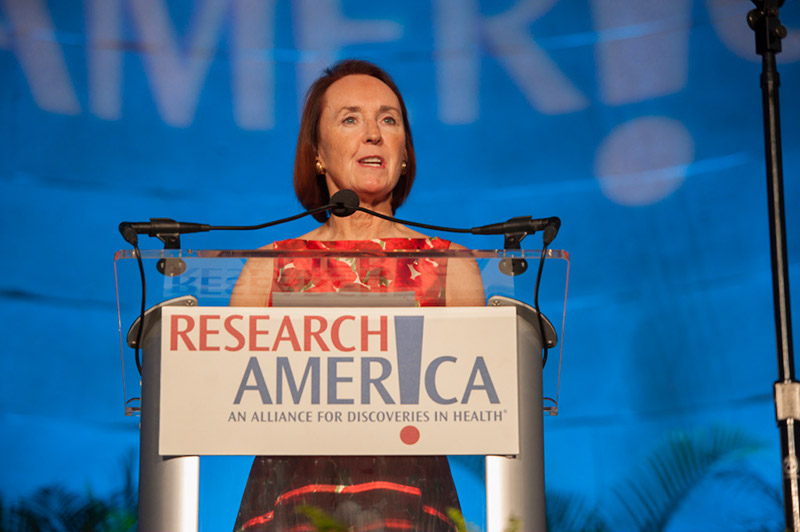Advocacy, Curiosity, Trust

The Labor Day holiday is upon us, a brief reprieve before a month during which several key, R&D-relevant bills will – or won’t – pass Congress. Your advocacy can help determine the fate of those bills.
On The Hill: Among those must-pass bills: the reauthorization of PDUFA and the SBIR/STTR programs. If these bills don’t pass, these programs end.
Will History Repeat Itself?: Year after year, Congress fails to complete the annual appropriations process by the September 30 deadline (although clearly it is not seen as one). The result? Federal agencies like NIH, FDA, CDC, NSF, AHRQ, and now ARPA-H are tethered, through continuing resolutions (“CRs”), to months and months of 1) outdated funding and 2) previous year priorities.
The fact this happens again and again could wear us down, but a repeated failure is no less damaging than a singular one. CRs stifle progress.
We hope your organization will sign on to this letter pressing congressional leaders to meet the September 30 appropriations deadline. Email Ellie Dehoney if you have ideas for additional advocacy!
Advocacy at Its Best: Another opportunity to advocate for medical progress is right around the corner: the American Association for Cancer Research-led Rally for Medical Research. On September 13 and 14, join an impressive coalition of medical research advocates making the case with members of Congress and their staff. Registration ends tomorrow.
Science Excellence: Next week, the Kavli Prizes will be awarded. Among the most prestigious awards in the science world, these prizes recognize breakthroughs in astrophysics, nanoscience, and neuroscience – “transforming our understanding of the big, the small, and the complex.” Congratulations to all of the 2022 Kavli Prize laureates for their profoundly important achievements.
Building on Curiosity: A recent study co-sponsored by the Kavli Foundation found that 94% of Americans are interested in science, fueled by curiosity and other positive motivations. How can the science community foster deeper connections with non-scientists?
Distrust vs. Skepticism: In a recent op-ed, CEO of the New York Academy of Sciences Nicholas Dirks, PhD, contributes to the conversation around science trust by shining light on what it isn’t: e.g. science trust and policy disputes are often confounded; healthy skepticism is sometimes labeled as distrust. I hope you’ll take a few minutes to read this provocative piece, and…
Share Your Ideas About Science Trust!: Join us on September 20 for an action steps-oriented panel discussion that ties these science trust themes together. The panel is just one of many timely conversations that are part of our annual National Health Research Forum, held virtually September 19 and 20.
Our Forum is free and open to everyone and features special guests such as FDA Commissioner Robert Califf, AHRQ Director Robert Otto Valdez, White House COVID-19 Response Coordinator Ashish Jha, PCORI Executive Director Nakela Cook, and you(!).
Check out the agenda and register so you’ll get updates as time slots are finalized and new speakers are added. Join us for the sessions that fit your interests and schedule.
Two Standout Discussions:
- Climate Change, Health, and Health Equity: This week we were joined by John Balbus, MD, MPH, Interim Director of the newly-formed Office of Climate Change and Health Equity at HHS, for a lively discussion on the role the research community can and should play in climate change and how climate change impacts health equity. We were fortunate to share this discussion live and on-air with C-SPAN1. You can watch the recording on our YouTube page or check out C-SPAN’s coverage.
- Monkeypox: If you would like to revisit our recent alliance discussion about monkeypox with Dr. Daniel Bausch, President of the American Society of Tropical Medicine and Hygiene (ASTMH), we’ve put together highlights of the conversation in our latest blog post.
Spread the Word!: The application cycle closes soon – September 9 – for Research!America’s 2022-2023 Civic Engagement Microgrants. Early career scientist-led groups from across the United States will receive funding to support innovative public engagement activities. We hope you will help us reach as many early career researchers as possible by sharing this opportunity with your networks on Twitter, LinkedIn, and Facebook.
Stay well, stay safe, stay cool, and stay connected.




